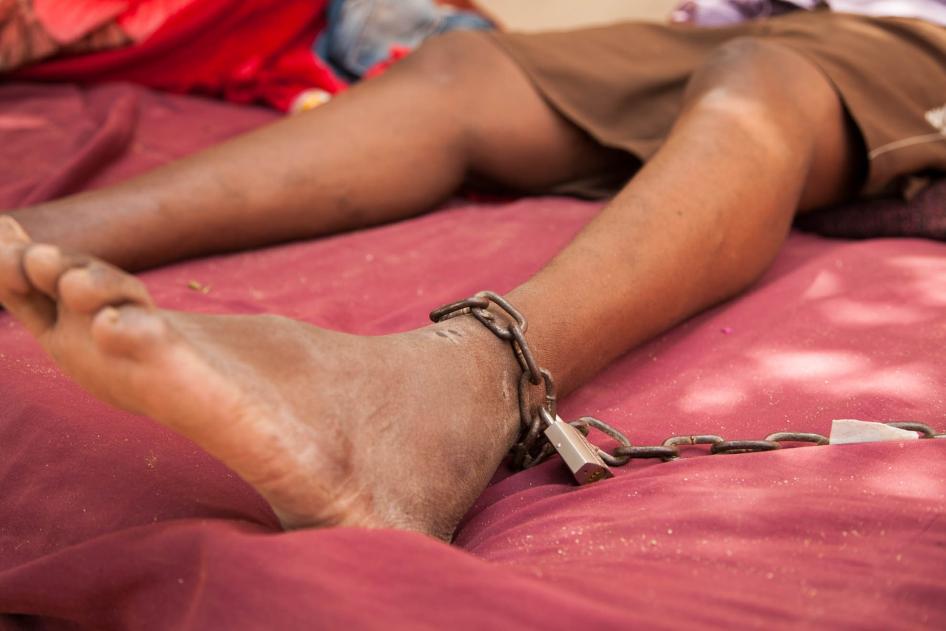People With Disabilities Abused, Neglected

People with mental health conditions in Somaliland are increasingly forced into institutions, where they face serious abuses and poor conditions. The Somaliland authorities should provide oversight for all mental health facilities, prohibit chaining, and establish voluntary community-based services for people with mental health conditions.
The 81-page report, “‘Chained Like Prisoners’: Abuses Against People with Psychosocial Disabilities in Somaliland,” finds that men with perceived or actual psychosocial disabilities face abusive restraints, beatings, involuntary treatment, and overcrowding in private and public health centers. Most are held against their will and have no possibility of challenging their detention. In private centers in particular, those with psychosocial disabilities face punitive and prolonged chaining, confinement, seclusion, and severe restrictions on their movement. The findings highlight the importance of mental health services in post-conflict regions. According to the World Health Organization, Somaliland has high rates of psychosocial disability.
“Rather than providing appropriate and voluntary medical care or rehabilitation, these centers subject residents to prison-like regulations, isolation, and involuntary treatment,” said Laetitia Bader, Africa researcher at Human Rights Watch. “The Somaliland authorities should act quickly to address the abuses inside mental health institutions.”
Human Rights Watch conducted research in Hargeisa, Berbera, and Gabiley, and interviewed over 115 people, including 47 with actual or perceived disabilities who have been placed in institutions. Most had faced abuse. Basic due process, judicial oversight, and channels of redress are non-existent. The research focused primarily on privately run residential centers in Hargeisa. As most centers hold men, the findings largely address their situations, though women with psychosocial disabilities also suffer serious abuses.
Somaliland does not keep official data on the prevalence of mental health conditions, but existing research points to alarmingly high levels because of violence and trauma from the civil war, lack of health services, and widespread use of the amphetamine-like stimulant khat. For years, people with mental disabilities have been left on their own to confront significant social stigma or have had to rely largely on relatives who have little information and understanding about their conditions and have nowhere to turn to for assistance.